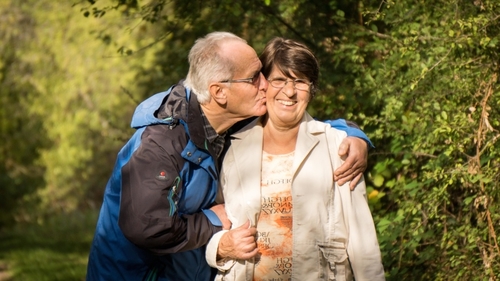
Bullying is never good. It’s supposed to be over and done with by the time we are out of school. We think we’ve escaped bullying. Bad news everyone, bullying in assisted living happens a lot.

Seniors Bullying Seniors?
The idea of an older person getting up and defending themselves is a bit of a funny one. People will often be like: “Yeah, Grandma!”
It’s a lot more complicated for people in assisted living. It’s guessed that around 10 to 20% are treated poorly by their peers. This is according to an AARP article quoting an Arizona State University gerontologist.
You can’t tell a senior to ignore bullies like you would a teenager. It can cause severe depression in seniors because socializing is a key part of their well-being. Being bullied too much as people get older could lead to suicide.
Why Does This Happen?
Seniors bullying others can happen for different reasons. Some may bully to try to regain control of their life or a sense of their status. There’s also bullying because of dementia or any other kind of cognitive changes.
Another reason is people dealing with any health issues. It’s not easy to watch your body fall apart because you are getting older. Imagine how easy it would be to make yourself feel better by picking on someone weaker than you?
5 Ways to Deal with Bullying in Assisted Living
Do you know if your senior is dealing with bullying? Could they even be the bully? Here are some tips to help out.
1. Ask the Question
Don’t be afraid to ask any potential communities if there is a bullying problem. If there is, how is it handled? What type of bullying is most common in their community? How do they encourage residents to speak up?
Your senior may not think that sort of situation will happen to them. It’s up to you to take action.
2. Watch and Listen
Do you remember how you acted when you were bullied (if you were bullied)? It was hard to speak up, hard to know if it will help or make everything worse.
The same goes for senior bullying, so pay attention.
Is your senior avoiding shared spaces? Do they refuse to go to the dining hall? Hesitate to join group activities?
Those can be signs of bullying. You should go to the director and ask about it. Good communities will have safety and security as their top priority. Though they can’t help if they don’t know.
3. Standing Up to Bullying in Real Time
If you see a resident bullying anyone during one of your visits, you should let the leaders of the community know right away.
Bullying needs to be confronted quickly so residents know they will always be protected and cared for.
If you watch to see how an episode goes, it can make it seem like bullying is okay sometimes.
4. Have Some Compassion
It’s easy to forget your compassion for both the victim and the bully. Whether your senior is a victim or a bully, try to understand that it can be hard to enter a community.
Remember bullying can be a symptom of a much bigger problem. When you find out what the real problem is, then you can stop the bullying.
5. Suggest a Support Team
It never hurts to suggest to the people in charge to create a support team. They can do this with residents with the right personality, families of residents, or other staff.
This way no one falls through the cracks.
Read more here.





